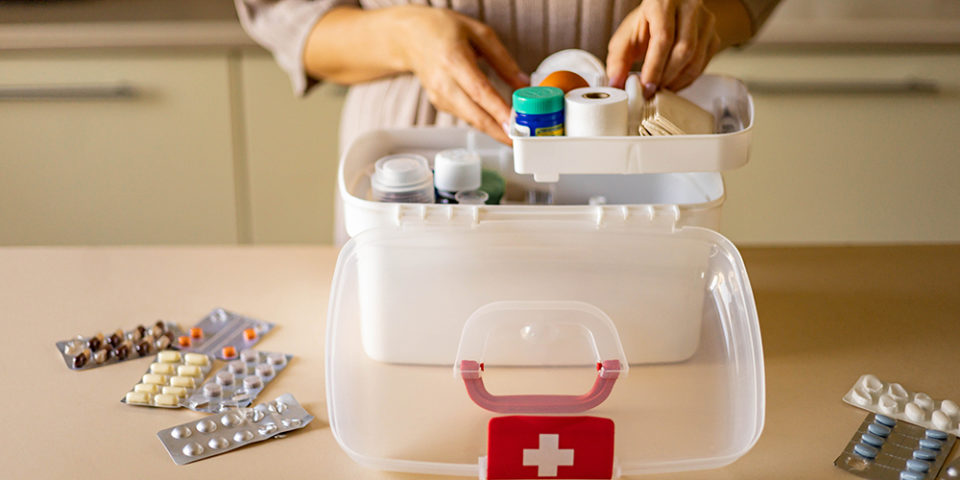Summer travel: What to include in your first-aid kit
Even small injuries can derail a vacation, so it’s important to have a first-aid kit while you’re traveling. According to the Centers for Disease Control and Prevention, 44% of Americans do not have first-aid kits even though having a well-stocked and maintained kit is essential in being prepared for accidents, especially during summer travel.
Emergency medicine physician Nathaniel Mann, MD, explained what to include in your kit – and why – to be prepared for possible emergencies.
Why do you need a first-aid kit?
“We all like to think that nothing bad is going to happen to us, but injuries can happen anywhere at any time and to anybody,” said Dr. Mann. “Being adequately prepared by having all vital medical products in one accessible location may reduce the severity of an injury, save your vacation or even help save a life.”
He suggested creating your own kit instead of buying a pre-packaged one. Augment your kit with items specific to your family’s needs and summer travel plans.
What should be included in a first-aid kit?
Dr. Mann recommended starting with these essentials:
- Stop-the-Bleed kit, to include compression dressings or a tourniquet you’ve been trained to use.
- An EpiPen, even if you don’t have severe allergies to bees or wasps.Familiarize yourself with its use ahead of time.
- Something sugary like glucose tablets or gummy candies to treat episodes of low blood sugar.
- Adhesive bandages of assorted sizes to cover minor cuts and scrapes.
- Sterile gauze pads of various sizes.
- Medical adhesive tape to attach gauze pads to skin around wounds.
- Antiseptic wipes to disinfect wounds.
- Non-latex gloves.
- Pain relievers such as ibuprofen (Advil), acetaminophen (Tylenol) and aspirin.
- Antihistamines to relieve allergies or itching.
- Dramamine or an anti-nausea medicine for motion sickness.
- Antibiotic ointment to prevent infection in open wounds.
- Calamine lotion/hydrocortisone cream for bug bites or poison ivy.
- A list of emergency phone numbers and allergies of family members.
“The more remote you plan on going, the more prepared you should be to handle minor injuries by yourself. Remember that some of these medications can do double duty. For example, you may not be prone to motion sickness in a car, but Dramamine could mitigate vertigo or dizziness from an unexpected sinus infection,” said Dr. Mann.
“Not every sickness or injury can or should be treated at home,” he added. “Get as much training as you can but trust your gut and know when to seek help.”
You can find more tips on how to be safe and prepare for emergencies in the outdoors here on Flourish.
Find the care you need, close to home
Our primary care physicians provide well visits and everyday care when you need it with compassion and expertise.
Find Primary Care Near You

